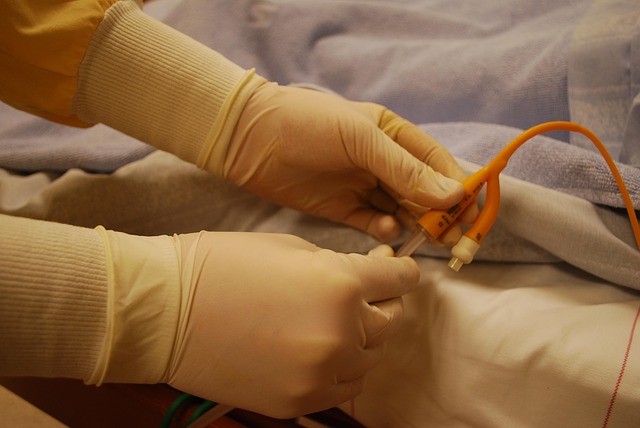Colon Cancer Treatment: Understanding Your Options and Outcomes
Colon cancer is a serious health concern that affects millions of people worldwide. As medical science advances, so do the treatment options available to patients diagnosed with this form of cancer. This article aims to provide a comprehensive overview of colon cancer treatment, exploring the various approaches, their effectiveness, and what patients can expect during their journey to recovery.

-
Chemotherapy: This systemic treatment uses drugs to kill cancer cells throughout the body. It may be used before surgery (neoadjuvant) to shrink tumors or after surgery (adjuvant) to eliminate remaining cancer cells.
-
Radiation therapy: High-energy beams are used to target and destroy cancer cells. While less common in colon cancer treatment, it may be used in specific cases, particularly for rectal cancer.
-
Targeted therapy: These drugs focus on specific abnormalities within cancer cells, interfering with their growth and spread.
-
Immunotherapy: This treatment boosts the body’s natural defenses to fight cancer. It’s typically used for advanced stages of colon cancer.
How is the most appropriate treatment plan determined?
Determining the best treatment plan for colon cancer involves several factors:
-
Cancer stage: The extent of the cancer’s spread is crucial in deciding the treatment approach.
-
Tumor location: The specific area of the colon affected can influence treatment options.
-
Patient’s overall health: Age, general health condition, and other medical issues are considered.
-
Genetic factors: Certain genetic mutations may influence treatment effectiveness.
-
Patient preferences: The patient’s wishes and quality of life considerations are important in the decision-making process.
A multidisciplinary team of oncologists, surgeons, and other specialists typically work together to create a personalized treatment plan. This plan may evolve as the patient responds to initial treatments.
What are the potential side effects of colon cancer treatments?
While treatments aim to combat cancer, they can also cause side effects. Common side effects include:
-
Surgery: Pain, infection risk, and temporary bowel function changes.
-
Chemotherapy: Nausea, fatigue, hair loss, and increased risk of infections.
-
Radiation therapy: Skin irritation, fatigue, and bowel changes.
-
Targeted therapy: Skin problems, high blood pressure, and wound healing issues.
-
Immunotherapy: Fatigue, fever, and potential autoimmune reactions.
It’s important to note that not all patients experience all side effects, and many can be managed effectively with supportive care. Open communication with the healthcare team is crucial for addressing and minimizing side effects.
What are the latest advancements in colon cancer treatment?
Medical research continually brings new hope for colon cancer patients. Recent advancements include:
-
Minimally invasive surgical techniques: Laparoscopic and robotic surgeries offer faster recovery times and fewer complications.
-
Precision medicine: Tailoring treatments based on the genetic profile of the tumor.
-
Immunotherapy breakthroughs: New drugs that help the immune system recognize and attack cancer cells more effectively.
-
Liquid biopsies: Blood tests that can detect circulating tumor DNA, potentially allowing for earlier detection and more precise treatment monitoring.
-
Combination therapies: Novel approaches combining different treatment modalities for improved outcomes.
These advancements are expanding treatment options and improving survival rates for many colon cancer patients.
How effective are current colon cancer treatments?
The effectiveness of colon cancer treatment has improved significantly over the years. Survival rates vary depending on the stage at diagnosis:
-
For localized colon cancer (stage I), the 5-year survival rate is about 90%.
-
For regional spread (stage II-III), the 5-year survival rate is approximately 70%.
-
For distant metastatic disease (stage IV), the 5-year survival rate is around 14%.
It’s important to note that these are general statistics, and individual outcomes can vary. Early detection through regular screening significantly improves treatment effectiveness and survival rates.
What should patients expect during and after colon cancer treatment?
The colon cancer treatment journey can be challenging, but understanding what to expect can help patients prepare:
-
Treatment duration: Depending on the treatment plan, the process can last several months to a year or more.
-
Regular follow-ups: After initial treatment, patients will need ongoing monitoring to check for recurrence or side effects.
-
Lifestyle adjustments: Dietary changes and physical activity modifications may be necessary during and after treatment.
-
Emotional support: Many patients benefit from counseling or support groups to cope with the psychological impact of cancer treatment.
-
Long-term care: Some patients may require ongoing care, such as managing a stoma after certain surgical procedures.
Recovery is a gradual process, and patients should work closely with their healthcare team to address any concerns and optimize their quality of life throughout treatment and beyond.
Colon cancer treatment has come a long way, offering hope and improved outcomes for many patients. While the journey can be challenging, advances in medical science continue to enhance treatment effectiveness and quality of life for those affected by this disease. As always, early detection through regular screenings remains crucial in the fight against colon cancer.
This article is for informational purposes only and should not be considered medical advice. Please consult a qualified healthcare professional for personalized guidance and treatment.






